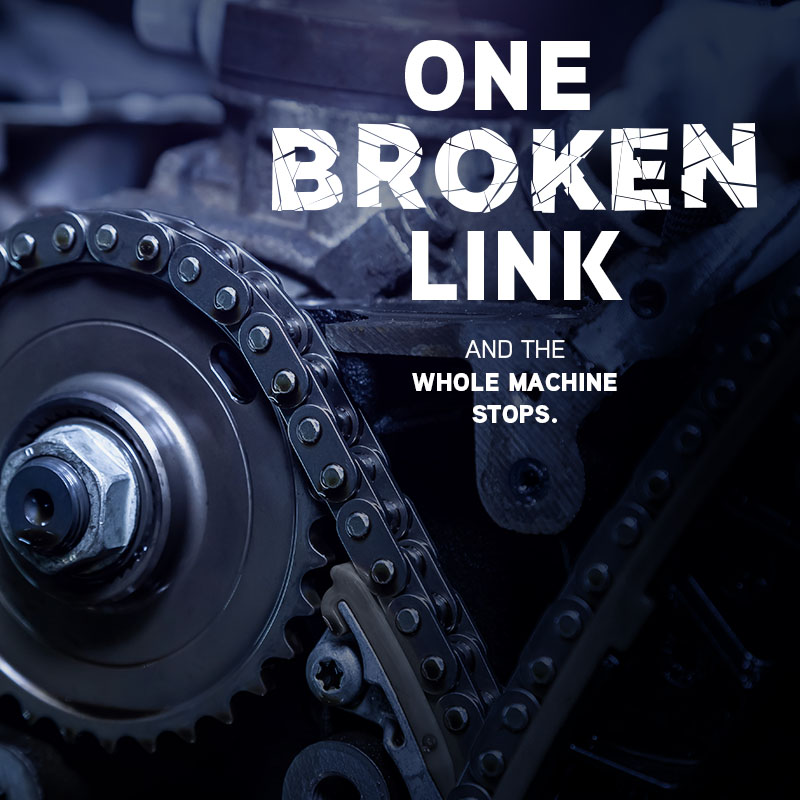Cyber Supply Chain Risk Management
Simple steps when selecting new suppliers can reduce supply chain risk
Supply chain cyber-attacks are ever more rampant and can exploit weaknesses to infiltrate systems and cause harm to your business and reputation. Therefore, as a business owner, you must prioritise your supply chain security and choose vendors committed to implementing best-in-class defence measures.
Having processes to select vendors with good security processes helps to mitigate the risk to your own organisation. No approach is risk free but simple steps when it comes to vendor selection can have a considerable impact on increasing your protection.
You should therefore prioritise the vetting process when selecting vendors because it enables you to identify potential security risks and ensure you collaborate with a vendor committed to protecting your business and your customers. But what do you look for?
Primary considerations for the vetting process
There are several things to keep in mind when vetting potential vendors:
Security processes
What security processes do your prospective vendors have in place? Before entering any contracts, you must talk to them about their security protocols and procedures. In these talks, determine whether the vendor performs regular vulnerability scans, timely system updates and multi-factor authentication. This will help you determine whether the vendor can meet all your security expectations and needs.Security certifications
Your vendor should be certified and be able to demonstrate compliance with industry security standards. This is important because it proves that the vendor has been independently assessed and meets the security standards to work effectively. An obvious tip is to ask them to send you copies of certification if these are not publicly available. It is quite common for vendors to find that their certification has lapsed!Where do they store data?
You must understand how and where the vendor stores data. Whether it is stored on the cloud, onsite or other means, your team must be fully aware and approve it, because these include sensitive details of your business.That will, in turn, help determine whether the vendor will manage your data carefully and safeguard it against potential breaches. It also enables you to calculate the risk involved, given the storage options that your vendor uses.
- Management of data.
What will happen to your company data if the partnership ends? You must be aware of whether your vendor would delete, store it or make it available for transfer to another vendor.It is crucial to understand whether third parties will retain access to your data in the long run to ensure it is well-protected. Just as you might delegate certain tasks to a third-party provider, they, in turn, might delegate them to a fourth-party provider. Therefore, you must be aware of the information they intend to share and include it within the contractual agreement.
- Business Continuity and Disaster Recovery (BCDR)
Ask to see your vendor’s Business Continuity and Disaster Recovery (BCDR) plan. Should a disaster or crisis occur, this plan will guarantee the availability and recoverability of your vital data and systems. - Cyber liability insurance
It is important to know whether your vendor carries cyber liability insurance, given the rising instances of attacks and data breaches. In the event of a severe incident, the insurance coverage safeguards your business and offers reassurance that you will be compensated for any resulting changes. It is also helpful to understand just how much their insurance covers the vendor for.
Can an IT service provider help?
Choosing the right vendor can be daunting, especially if you are trying to do it independently. It requires thorough research, careful consideration of all relevant factors and a clear understanding of your security needs and expectations. That is where an IT service provider like us can help.
We can assist in mitigating supply chain disruptions by evaluating and addressing vulnerabilities within your network. We can also help you manage vendor relationships and ensure you collaborate with those meeting your security standards.
To guide you through managing your supply chain issues, we have created a checklist titled “Best Strategies to Manage Your Supply Chain Risks” that you can download here.


